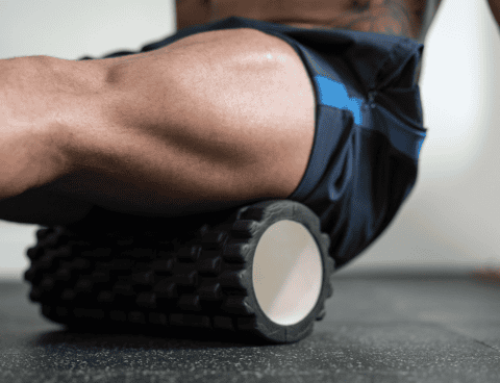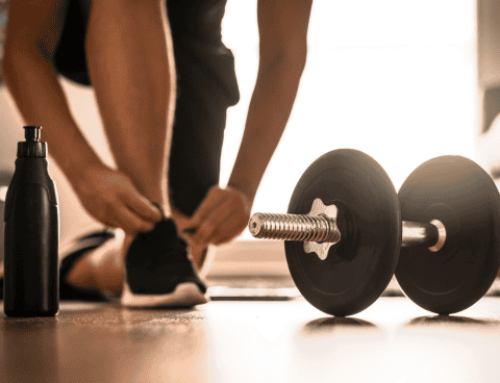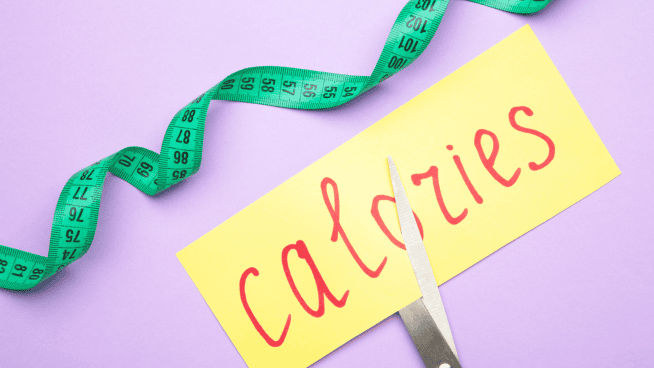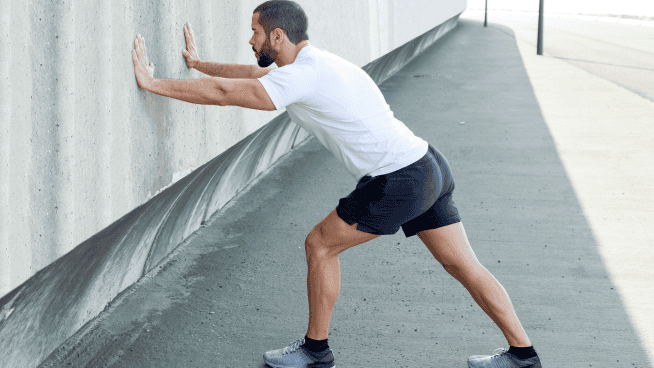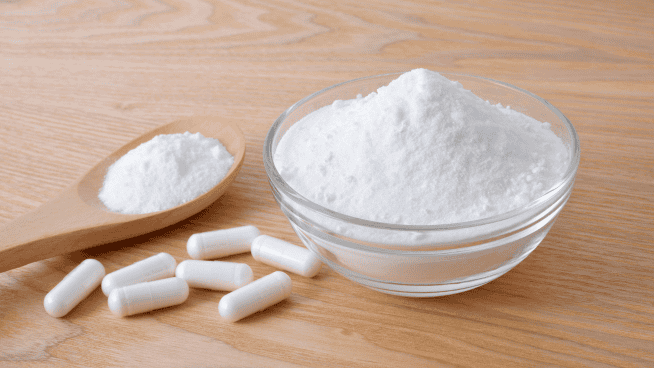“In basketball – as in life – true joy comes from being fully present in each and every moment, not just when things are going your way.” Phil Jackson, Sacred Hoops
Eleven-time NBA champion and Hall of Fame Coach, Phil Jackson, continued the statement from above with: “Of course, it’s no accident that things are more likely to go your way when you stop worrying about whether you’re going to win or lose and focus your full attention on what’s happening right this moment.”
So many athletes today say what helps them play their best games is to be in the present. What exactly does that mean? This article will detail mindfulness practices and apply mindfulness strategies, including maximizing the mind-body connection, mindfulness routines, confidence building, journaling, positive self-talk/perceptions, and how these can all help in keeping one’s focus on what the athlete can control – the present.
Let’s begin by defining mindfulness. This occurs when you are simply paying attention to what is actually happening. According to Jackson, when players practice and play mindfully, they not only play better and win more, they “also become more attuned with each other.” What coach wouldn’t want that? In my consulting work with top college tennis players, when the topic of mindfulness comes up. I stress the importance of viewing mindfulness as more of a way of being rather than just a way of doing. But to achieve this way of entailing a lot of correct doing, which begins with a mindful mindset.
Mindful Mindset A mindful mindset is characterized by:
- Practicing being present in all areas of your life, and not just sport.
- Focus on tasks right in front of you, not on what happened in the past or what may happen
- The belief in your capacities and trusting your training
- Being in the moment and not judging the moment
- You have control of how you respond to anything that happens around you
Mindfulness Awareness Questions
Some reflective questions to ask yourself to improve upon your awareness of your present focus.
- Are you present during all of your classes, errands, practices, or do you get lost in your own thoughts?
- Do you find your mind wandering on past events?
- Do you worry about what hasn’t happened yet?
- Are you judgemental of others and yourself?
- Do you have a a belief in what you can accomplish?
- Do you feel you control over events that happen in your life?
- Are you good at rolling with the punches?
George Mumford, author of Mindful Athlete and the mindfulness coach for the Chicago Bulls, Los Angeles Lakers, and others had this to say about the power of mindfulness at the highest levels of sport: “If you’re very mindful, then you have concentration and insight in your mindfulness. They help you live every moment of life deeply.” The minute your mind is elsewhere, the present moment is gone
Mindfulness Strategies. Mind-Body Connection.
At the core of mindfulness is the realization that the mind and body are interconnected. You could not separate the two even if you wanted to. Performance guru Jim Loehr referred to outside-in training and inside-out training. How you physically prepare your body for competition also trains the mind and emotional states, so strength training improves physical and mental toughness. When you use cognitive strategies like mental imagery, confidence-building, and productive self-talk, you are training from the inside-out, which will improve how you technically perform. Mastering the power of the mind-body connection helps you control your thoughts and self-talk dialogue (ensure it is positive/productive) along with maximizing your physiology (release muscle tension, better-deeper breathes).
Individual Routines
Maximizing the mind-body connection and being entirely focused on the present moment entails using an individual collection of routines that work specifically for you. For example, one of my clients begins each service with a full breath which gives him the the energy to perform optimally but it also clears his head of any doubt or worries. He then focuses on the bouncing of the ball, his toss then serve. After errant shots, he refocuses by taking another deep, relaxing breath, uses some motivational self-talk, visualizes his next shot, and then got into his stance with a positive presence. Continue to try different strategies until you come across a collection that hits your “sweet spot,” characterized by feeling ready and confident and in the present moment.
A baseball client chose a simple, action-based pre-bat routine based on focusing on a deep breath to slow the mind down and relax any muscle tension. Deep, relaxing breathing should be included in most routines since we need it while blocking out distractions. One pitcher I worked with would always “clean” the dirt near the rubber as a symbolic action to ‘wipe away’ a rare, bad pitch.
Positive Self-Fulfilling Prophecy
Ensure you engage the positive self-fulfilling prophecy by thinking positive expectancies (“I’ve got this next shot”) and your conscious/unconscious actions will reflect this, especially since we want to be competent in all we do. If we believe we will do well, our actions will reflect this. If we are negative/self-defeating, our efforts will reflect this. Choose productive positive, especially when perceiving how you are playing.
The worst time to evaluate your play is while you are playing! Only focus on what you are contributing. If you believe you could contribute more (to the offensive or defensive sides of the game or help add energy or be a better teammate), put the effort there. When you know you are contributing a lot (thus, playing well!) Enjoy it! Our opponents’ job is to make us uncomfortable and challenge us on every play. Most of the time, we will be playing while being uncomfortable – having to grind it out. In your head, your self-talk must be phrased in words that embracing this competition. Bring it on! Thinking that you are playing like crap will only sap energy/confidence and get you from yellow to red to being done. Keep grinding, stay confident, stay focused on your contributions. If one part of your game is off, gain confidence from your accomplishments from the other parts of your game. And use the energy/feedback from your teammates to get you going as well. Don’t shut out teammates, and do not shut down!
Maximize your Sources of Confidence
According to psychologist Albert Bandura, the top sources of confidence come from our current successes and prior accomplishments. So, to maintain an optimal level of confidence, give yourself credit for the contributions you make on the field or court. We all do a lot of little things to put ourselves and the team in a successful position. Give yourself credit for these small victories. I refer to these as “deposits” to your internal confidence bank.” As with a real bank account, the more deposits the more money you will have. The same goes for your confidence bank. The more you give yourself credit and even recall past successes, the more confidence you will have. When you are negative in thoughts/self-talk, those are withdrawals. More negativity, the less confidence you will have.
Performance Journaling
Jotting your reflections post-practice or post-competition can be a valuable learning opportunity. It will give you a chance to give yourself credit for the little things you did to help yourself and your teammates. Responding to questions such as, “What worked today? What did I learn today? Who noticed?” (feedback from coaches, captains, teammates) and embrace these kudos or compliments. Give yourself credit for what you do in the classroom, for others, in practice, and especially in games. You are always contributing something, so give yourself credit for these contributions to add more to your confidence. Learn from your mistakes but at some point, when you leave the locker room or the parking lot, … only think of your positive, productive contributions. Confidence is a skill that must be reinforced by you. No one can enhance it but you, even though coaches and teammates can certainly assist you.
Knowing the benefits of being mindful and present-focused is one thing, but doing it consistently, and eventually becoming mindful and present-focused in our every day is another.
“I fear not the man who has practiced 10,000 kicks once, but I fear the man who has practiced one kick 10,000 times.” Bruce Lee
Read More
References:
Phil Jackson. Sacred Hoops (New York, NY: Hyperion, 1995), 4-5.
George Mumford. The Mindful Athlete (Berkeley, CA: Parallax Press, 2016), 69, 130.
RECOMMENDED FOR YOU
MOST POPULAR
“In basketball – as in life – true joy comes from being fully present in each and every moment, not just when things are going your way.” Phil Jackson, Sacred Hoops
Eleven-time NBA champion and Hall of Fame Coach, Phil Jackson, continued the statement from above with: “Of course, it’s no accident that things are more likely to go your way when you stop worrying about whether you’re going to win or lose and focus your full attention on what’s happening right this moment.”
So many athletes today say what helps them play their best games is to be in the present. What exactly does that mean? This article will detail mindfulness practices and apply mindfulness strategies, including maximizing the mind-body connection, mindfulness routines, confidence building, journaling, positive self-talk/perceptions, and how these can all help in keeping one’s focus on what the athlete can control – the present.
Let’s begin by defining mindfulness. This occurs when you are simply paying attention to what is actually happening. According to Jackson, when players practice and play mindfully, they not only play better and win more, they “also become more attuned with each other.” What coach wouldn’t want that? In my consulting work with top college tennis players, when the topic of mindfulness comes up. I stress the importance of viewing mindfulness as more of a way of being rather than just a way of doing. But to achieve this way of entailing a lot of correct doing, which begins with a mindful mindset.
Mindful Mindset A mindful mindset is characterized by:
- Practicing being present in all areas of your life, and not just sport.
- Focus on tasks right in front of you, not on what happened in the past or what may happen
- The belief in your capacities and trusting your training
- Being in the moment and not judging the moment
- You have control of how you respond to anything that happens around you
Mindfulness Awareness Questions
Some reflective questions to ask yourself to improve upon your awareness of your present focus.
- Are you present during all of your classes, errands, practices, or do you get lost in your own thoughts?
- Do you find your mind wandering on past events?
- Do you worry about what hasn’t happened yet?
- Are you judgemental of others and yourself?
- Do you have a a belief in what you can accomplish?
- Do you feel you control over events that happen in your life?
- Are you good at rolling with the punches?
George Mumford, author of Mindful Athlete and the mindfulness coach for the Chicago Bulls, Los Angeles Lakers, and others had this to say about the power of mindfulness at the highest levels of sport: “If you’re very mindful, then you have concentration and insight in your mindfulness. They help you live every moment of life deeply.” The minute your mind is elsewhere, the present moment is gone
Mindfulness Strategies. Mind-Body Connection.
At the core of mindfulness is the realization that the mind and body are interconnected. You could not separate the two even if you wanted to. Performance guru Jim Loehr referred to outside-in training and inside-out training. How you physically prepare your body for competition also trains the mind and emotional states, so strength training improves physical and mental toughness. When you use cognitive strategies like mental imagery, confidence-building, and productive self-talk, you are training from the inside-out, which will improve how you technically perform. Mastering the power of the mind-body connection helps you control your thoughts and self-talk dialogue (ensure it is positive/productive) along with maximizing your physiology (release muscle tension, better-deeper breathes).
Individual Routines
Maximizing the mind-body connection and being entirely focused on the present moment entails using an individual collection of routines that work specifically for you. For example, one of my clients begins each service with a full breath which gives him the the energy to perform optimally but it also clears his head of any doubt or worries. He then focuses on the bouncing of the ball, his toss then serve. After errant shots, he refocuses by taking another deep, relaxing breath, uses some motivational self-talk, visualizes his next shot, and then got into his stance with a positive presence. Continue to try different strategies until you come across a collection that hits your “sweet spot,” characterized by feeling ready and confident and in the present moment.
A baseball client chose a simple, action-based pre-bat routine based on focusing on a deep breath to slow the mind down and relax any muscle tension. Deep, relaxing breathing should be included in most routines since we need it while blocking out distractions. One pitcher I worked with would always “clean” the dirt near the rubber as a symbolic action to ‘wipe away’ a rare, bad pitch.
Positive Self-Fulfilling Prophecy
Ensure you engage the positive self-fulfilling prophecy by thinking positive expectancies (“I’ve got this next shot”) and your conscious/unconscious actions will reflect this, especially since we want to be competent in all we do. If we believe we will do well, our actions will reflect this. If we are negative/self-defeating, our efforts will reflect this. Choose productive positive, especially when perceiving how you are playing.
The worst time to evaluate your play is while you are playing! Only focus on what you are contributing. If you believe you could contribute more (to the offensive or defensive sides of the game or help add energy or be a better teammate), put the effort there. When you know you are contributing a lot (thus, playing well!) Enjoy it! Our opponents’ job is to make us uncomfortable and challenge us on every play. Most of the time, we will be playing while being uncomfortable – having to grind it out. In your head, your self-talk must be phrased in words that embracing this competition. Bring it on! Thinking that you are playing like crap will only sap energy/confidence and get you from yellow to red to being done. Keep grinding, stay confident, stay focused on your contributions. If one part of your game is off, gain confidence from your accomplishments from the other parts of your game. And use the energy/feedback from your teammates to get you going as well. Don’t shut out teammates, and do not shut down!
Maximize your Sources of Confidence
According to psychologist Albert Bandura, the top sources of confidence come from our current successes and prior accomplishments. So, to maintain an optimal level of confidence, give yourself credit for the contributions you make on the field or court. We all do a lot of little things to put ourselves and the team in a successful position. Give yourself credit for these small victories. I refer to these as “deposits” to your internal confidence bank.” As with a real bank account, the more deposits the more money you will have. The same goes for your confidence bank. The more you give yourself credit and even recall past successes, the more confidence you will have. When you are negative in thoughts/self-talk, those are withdrawals. More negativity, the less confidence you will have.
Performance Journaling
Jotting your reflections post-practice or post-competition can be a valuable learning opportunity. It will give you a chance to give yourself credit for the little things you did to help yourself and your teammates. Responding to questions such as, “What worked today? What did I learn today? Who noticed?” (feedback from coaches, captains, teammates) and embrace these kudos or compliments. Give yourself credit for what you do in the classroom, for others, in practice, and especially in games. You are always contributing something, so give yourself credit for these contributions to add more to your confidence. Learn from your mistakes but at some point, when you leave the locker room or the parking lot, … only think of your positive, productive contributions. Confidence is a skill that must be reinforced by you. No one can enhance it but you, even though coaches and teammates can certainly assist you.
Knowing the benefits of being mindful and present-focused is one thing, but doing it consistently, and eventually becoming mindful and present-focused in our every day is another.
“I fear not the man who has practiced 10,000 kicks once, but I fear the man who has practiced one kick 10,000 times.” Bruce Lee
Read More
References:
Phil Jackson. Sacred Hoops (New York, NY: Hyperion, 1995), 4-5.
George Mumford. The Mindful Athlete (Berkeley, CA: Parallax Press, 2016), 69, 130.


